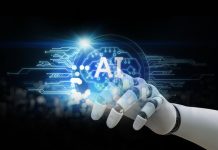Industry 4.0, with its suite of digital technologies, is creating unprecedented buzz in the industry. Industrial Internet of Things (IIoT), Data Analytics, Machine Learning, Artificial Learning and quite a few more, all have implication to disrupt existing manufacturing and business models, drive productivities and profitabilities beyond what was thought possible earlier and open up entirely new opportunities. Process activation companies have been in the forefront of providing such technologies. Chemical Industry Digest sought these views from Sajiv Nath, Managing Director of Yokogawa India- a leading electrical engineering and software company, which are reproduced below.
 Sajiv Nath is Managing Director of Yokogawa India Ltd. Prior to Yokogawa, he has worked as Managing Director at Endress+Hauser, India. He completed his engineering in Industrial Electronics from College of Engineering, Pravaranagar and then pursued Masters in Financial Management from K.J. Somaiya Institute of Management Studies and Research.
Sajiv Nath is Managing Director of Yokogawa India Ltd. Prior to Yokogawa, he has worked as Managing Director at Endress+Hauser, India. He completed his engineering in Industrial Electronics from College of Engineering, Pravaranagar and then pursued Masters in Financial Management from K.J. Somaiya Institute of Management Studies and Research.
Chemical Industry Digest (CID): As you know the suite of digital technologies comprising of IIOT, AI, Machine Learning, Data Analytics, Advanced Robotics is expected to take the oil & gas, hydrocarbon and rest of chemical industries to the next paradigm. In what all ways is it going to impact these industries? What in brief are the benefits to these industries? Would this be disruptive as it is made out or would the incorporation bring in changes only incrementally?
Sajiv Nath (SN) : The industry is going through a paradigm shift. Not only the ones mentioned above but all industries and even our personal lives will be greatly impacted with Digital Technologies, rather Digital Transformation, if we can say so.
Digital transformation will enable to monitor the performance rate of the assets continuously and analyse Big Data by using latest AI in devices and platforms and thereby providing instant and accurate information that supports and accelerates the decision making process.
In today’s highly competitive world, each company has to strive to increase productivity with increased level of compliance. Quick and right decision making is the key to sustain in such regime. Digital Technology offers companies the right tools to deal with these challenges.
In Industry perspective, Digitalization means convergence of Operational technologies with Information Technologies. At present the decision support at centre of excellence or decision making at Business Head Quarters are not necessarily connected with plant-level reality on real-time basis. Digital transformation aims to connect the entire business process. Silos have been big deterrent in productivity. In a connected process, silos are bound to disappear, making decisions more accurate and effective.
Digital transformation will encompass the entire business process -right from automation of more processes to realizing SMART manufacturing to optimizing supply-chain leading to improved decision making, creating new business models and greater revenues.
Answering to the question whether there will be any disruption, we feel it will be incremental. Apart from technology , successful Digital Transformation, like any other transformation processes need the buy-in from the people. It needs cultural change and mindset change. First is willingness to change which will be followed by capacity to change.
We also need to understand that it will not be a replacement of the assets you have , rather it will be aimed to extract more values from what you have , by de-bottle necking the process and through change of culture of people. Data and quality of Data is also a challenge which will slow down the process of Digitalization.
CID: Are these technologies more suited for asset-intensive and complex industries like oil & gas, refineries, petrochemicals, etc. or also for mid-sized industries like drugs & pharma and other fine chemicals?
SN:The same or similar questions came to everybody’s mind whenever a paradigm shift has been around the corner. The benefits of Digitalization are for every industry to grab – scale will of course be different. For large industries, it is more essential, simply because of distributed activities. Complexity of the projects are being addressed by the OT side of the equation . That will be continued, however will be supported by the Big Data , Data Analytics and IIoT.
However, the areas of impact and improvement can differ. For example, for Pharmaceutical industries , supply-chain , R&D can be immensely benefited from Digital Transformation.
CID: How should hydrocarbon and other chemical companies go about implementing the digital transformation of their companies through these technologies? Where should they start and how should they sequence the digitalization? What are the challenges according to you in its implementation?
SN: Not an easy question to answer. Challenges are many and more company specific than industry-specific.
All parties need to work very closely with each other – user, financier , decision-makers, solution -providers need to understand the challenges and opportunities. I would think co-innovation is the only way to be successful in such projects.
Industry has crossed the level “whether to go for Digitalization or not”. Industry headwinds like volatility and cost pressure have forced Industry to think beyond process de-bottle necking. Capital efficiency, Resource Efficiency as well as Asset Efficiency have been of utmost importance to tide over such volatility, and Digital implementation is the answer. Industry has understood.
Now challenges are in terms of quality and large varieties of existing assets, availability and quality of data , fear of loss of investment, mindset , data security and many other. Investment and profitability are also significant consideration. Establishing ROI is making the things little more difficult for decision makers.
Maturity level are at different levels across the industries across demography.
CID: What functional areas would it benefit the most: process optimization & production, maintenance, environment & safety, supply chain, R&D…?
SN: Entire business process will make a positive impact with co-innovation. Aim is to achieve Resilient Operation ,Optimized Production and Business Innovation.
CID: Can these technologies be retrofitted on existing IT and automation platforms? Or would it need a total to revamp? What about the investment and payback period?
SN: The target is to get maximum out of existing assets and protect the investment. In certain cases or for certain assets , mainly on OT side , retrofitting to a limited scale will be possible. Payback period will largely vary on the present plant condition, scale and digitization proposal – at elementary level or at enterprise level.
CID: With the enormous amount of data being collected due to IIoT, machine learning etc and the need for data analytics, can such data be managed internally (within the companies) or externally through the cloud? And if so, what about cybersecurity issues?
SN: Cloud is an essential part of the Digital Ecosystem. And yes, cybersecurity is also a big challenge. Many companies , including Yokogawa are constantly providing solutions to ensure data security. Even without Digitization, cybersecurity has been a concern. It may lead to market manipulation , device sabotage and even plant destruction. There are quite a few such incidents across the globe. So with or without Digitization and irrespective of industry segments, companies need to follow certain guidelines like isolate the web-facing system from OT/ICS , establish and enforce a “least privilege” culture across IT systems and many others.
CID: How can one allay fears that AI and large scale digital transformation would lead to many unintended consequences as well as make a lot of human resources redundant? And also how can the need for skilled manpower for digital transformation be addressed? Would reskilling of existing manpower help?
SN: Like for any transformation, some skills will be outdated with Digital transformation as well . So, I would state it as an “outdated skill” than “redundant manpower”. As long as reskilling initiatives are taken by industries and people show motivation to learn on the go , it will be a smooth transition without any unintended consequences. Good part is that the skills required for Digitization are related skills . I would like to add that it will cause much less disruption than what was caused by the advent of computers. Change of mindset and action on time – both at decision-making level as well as working level are the keys for smooth transition. Digitization is here to stay and faster we accept the reality, better it is for the industry ,as a whole.































